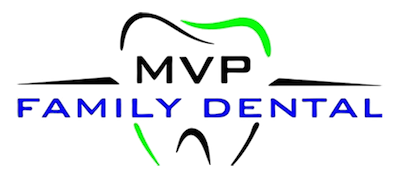Are you considering Invisalign® to correct your crooked, crowded, or protruding teeth? At MVP Family Dental, your trusted Jenkintown dental practice, we are proud to offer Invisalign as a premier teeth straightening option. With its increasing popularity, many families in Jenkintown and surrounding areas are beginning to inquire about what they can expect from the Invisalign treatment process. In this informative guide, we will cover essential details about Invisalign to help you make an informed decision about your orthodontic care.
Understanding Invisalign® Treatment
When you choose Invisalign treatment at our Jenkintown dental clinic, you can expect a combination of flexibility, comfort, and ease—qualities that set it apart from traditional orthodontic options like metal braces. Here’s what our new patients typically experience as they embark on their journey toward a straighter smile.
Flexibility in Your Orthodontic Care
One of the most appealing aspects of Invisalign is its flexible orthodontics. Invisalign clear aligners are designed to be removable, providing the convenience to maintain your lifestyle while undergoing treatment. However, it is important to note that achieving optimal results requires dedication. To gain the most from your Invisalign treatment, you should aim to wear your clear aligners for at least 22 hours a day. This approach ensures that your teeth are effectively guided into place without unnecessary delays. While it may be tempting to take the aligners out, remember that they should only be removed for meals and daily oral hygiene, contributing to both the ease of dental hygiene and effective treatment.
Comfort Beyond Compare
The comfort of Invisalign makes it an ideal choice for families seeking personalized dental care. Unlike traditional braces, which can cause discomfort, soreness, and even sensitivity, Invisalign clear aligners are designed for a comfortable fit. As your mouth adjusts to the aligners, most patients report little to no discomfort. Additionally, the design of Invisalign aligners promotes gentle yet effective teeth shifting, creating a more pleasant orthodontic experience compared to conventional methods. Our focus on comfortable dental treatment ensures that families in Jenkintown, from kids to adults, feel at ease throughout their treatment journey.
Simplicity in Your Daily Routine
Another significant advantage of choosing Invisalign treatment is its simplicity compared to other teeth straightening options. You will find that maintaining your oral hygiene routine with clear aligners is not only straightforward but also efficient. There’s no need for special tools or techniques—just remove the aligners when you brush and floss your teeth, then place them back on afterward. Eating with Invisalign is also a breeze, as you simply remove the aligners before meals, allowing you to enjoy your favorite foods without restrictions. After you’re done eating and your oral hygiene routine is complete, reinsert your aligners. It’s that easy!
Invisalign Benefits for Every Family
At MVP Family Dental, we engage families from Jenkintown and beyond in conversations about the many Invisalign benefits. Patients appreciate the aesthetic appeal of invisible braces, as they allow for a more discreet approach to teeth straightening. Many adults and older teens prefer these clear aligners because they feel more confident smiling during treatment—no need to hide behind metal brackets and wires. Our experienced team listens carefully to your needs, ensuring that the Invisalign treatment plan is personalized for you or your family members.
A Welcoming Environment for Orthodontic Treatment
We understand that seeking orthodontic treatment can be anxiety-inducing, especially for younger patients. That’s why our dental practice emphasizes gentle dentistry in a welcoming and comfortable environment. For over 30 years, we have been committed to comprehensive oral health, focusing on patient education and empowerment. When you choose our Jenkintown dental practice for your Invisalign treatment, you are choosing a team that prioritizes your comfort and well-being.
Convenient Access to Quality Care
At MVP Family Dental, we cater to the needs of families residing in Jenkintown, PA. We currently accept new patients and offer flexible appointment times to accommodate your busy schedule. Our team is here to provide personalized dental services, whether you need a routine checkup or an advanced treatment plan, like Invisalign. We also accept various insurance plans and offer multiple payment options to make quality orthodontic care accessible for everyone.
Start Your Invisalign Journey Today
If you’re ready to experience the benefits of Invisalign treatment, look no further than MVP Family Dental, your trusted Invisalign provider in Jenkintown. Our dedicated team is committed to guiding you through the entire process, from your initial consultation to the excitement of unveiling your new smile. Be sure to request an appointment today, and let us help you achieve the comfortable, confident smile you’ve always wanted through our personalized care and expertise in orthodontic treatment.
With MVP Family Dental, a brighter smile is just around the corner, making your orthodontic journey a positive experience for you and your whole family.
